Content Summary
Maintaining good health is a priority for everyone, and the food choices we make play a crucial role in disease prevention and management. By incorporating healthy foods into our diet, engaging in regular exercise, staying adequately hydrated, reducing stress levels, and prioritizing sufficient sleep, we can create a strong foundation for disease prevention and bolster our body's natural defense mechanisms.
Nourish Your Body with Healthy Foods
Embrace a Balanced Diet: A well-rounded diet includes a variety of fruits, vegetables, whole grains, lean proteins, and healthy fats. Incorporating colorful and diverse foods ensures that you receive essential nutrients, vitamins, and minerals necessary for optimal health.
What is a Healthy Balanced Diet and Foods?
A healthy balanced diet is one that provides all the essential nutrients, vitamins, and minerals required for optimal health and well-being. It involves consuming a variety of foods from different food groups in appropriate proportions. Here are the key components of a healthy balanced diet:
Fruits and Vegetables:
Include a wide variety of colorful fruits and vegetables in your diet. They are rich in fiber, vitamins, minerals, and antioxidants that promote good health. Aim for at least five servings of fruits and vegetables each day, and choose fresh, seasonal produce whenever possible.
Whole Grains:
Opt for whole grains such as whole wheat, brown rice, oats, quinoa, and barley instead of refined grains. Whole grains are a good source of fiber, complex carbohydrates, and important nutrients. They provide sustained energy, promote digestive health, and can help lower the risk of chronic diseases like heart disease and type 2 diabetes.
Lean Proteins:
Include lean sources of protein in your diet, such as skinless poultry, fish, eggs, legumes (beans, lentils, chickpeas), tofu, and low-fat dairy products. Protein is essential for building and repairing tissues, supporting immune function, and maintaining muscle mass.
Healthy Fats:
Choose sources of healthy fats, such as avocados, nuts, seeds, and fatty fish (salmon, mackerel, sardines). These fats are rich in omega-3 fatty acids, which are beneficial for heart health. Limit the intake of saturated and trans fats found in fried foods, processed snacks, and fatty meats.
Dairy or Dairy Alternatives:
Include low-fat dairy products like milk, yogurt, and cheese in your diet, if tolerated. If you are lactose intolerant or prefer non-dairy options, choose fortified alternatives like soy milk, almond milk, or oat milk that provide essential nutrients like calcium and vitamin D.
Hydration:
Drink an adequate amount of water throughout the day to stay hydrated. Water is essential for digestion, circulation, temperature regulation, and overall bodily functions. Aim for at least 8 glasses (64 ounces) of water daily, and adjust the amount based on your activity level and climate.
It's important to note that portion control is also crucial to maintaining a healthy balanced diet. Be mindful of your serving sizes and listen to your body's hunger and fullness cues. Additionally, limit the consumption of processed foods, sugary beverages, and foods high in sodium and added sugars.
Remember, a healthy balanced diet is not about strict restrictions or deprivation but rather about making mindful choices and enjoying a wide variety of nutritious foods in moderation.
Increase Plant-Based Foods
Plant-based foods such as fruits, vegetables, legumes, and nuts are rich in fiber, antioxidants, and phytonutrients, which help reduce the risk of chronic diseases such as heart disease, diabetes, and certain cancers.
Limit Processed Foods
Highly processed foods are often high in added sugars, unhealthy fats, and artificial additives. Minimizing their consumption can help reduce the risk of obesity, heart disease, and other metabolic disorders.

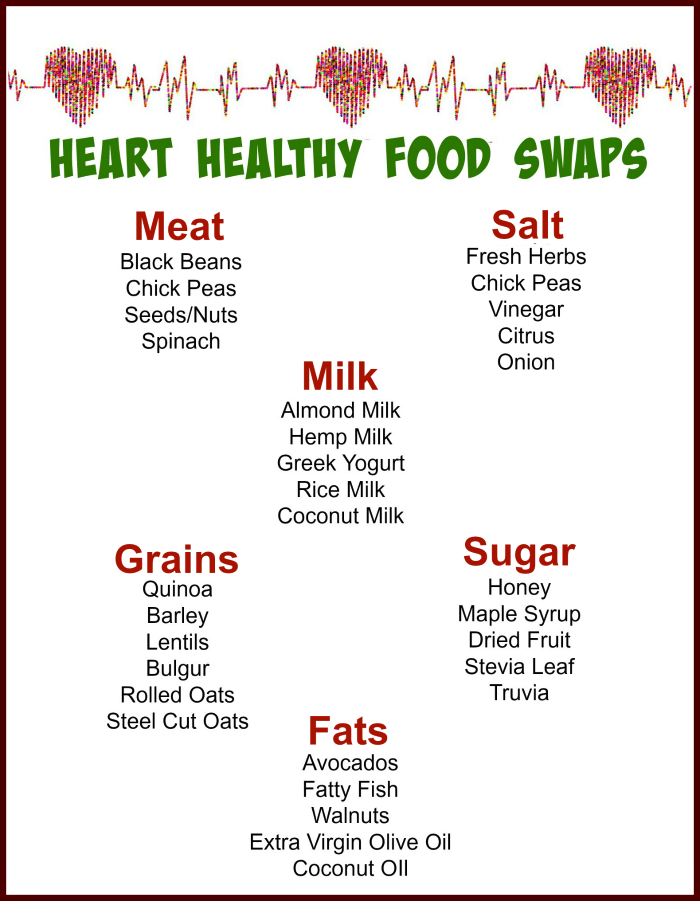

Exercise Regularly for a Healthy Body and Mind
Find Activities You Enjoy: Engage in physical activities that you find enjoyable and sustainable. This could include brisk walking, cycling, swimming, dancing, or any other form of exercise that gets your heart rate up and promotes overall fitness.
Aim for at Least 150 Minutes of Moderate Exercise per Week
Regular exercise improves cardiovascular health, strengthens the immune system, enhances mood, and helps maintain a healthy weight. Strive for at least 150 minutes of moderate-intensity exercise or 75 minutes of vigorous activity every week.
How Many Times a Week Should I Exercise to Stay Healthy?
To stay healthy, it is generally recommended to engage in regular exercise throughout the week. The American Heart Association and other reputable health organizations typically suggest the following guidelines for adults:
Aerobic Exercise: Engage in moderate-intensity aerobic exercise for at least 150 minutes per week or vigorous-intensity aerobic exercise for at least 75 minutes per week. Alternatively, you can combine moderate and vigorous exercise to achieve the recommended amount. It is advisable to spread out these sessions across the week, aiming for a minimum of 30 minutes per day on most days.
Strength Training: Incorporate strength training exercises at least two days a week. Focus on all major muscle groups, including the arms, shoulders, chest, back, abdomen, hips, and legs. Strength training can involve bodyweight exercises, resistance bands, free weights, or weight machines.
Flexibility and Balance Exercises: Include flexibility and balance exercises regularly to improve joint mobility, prevent injuries, and enhance stability. These exercises can be practiced daily or on most days of the week and may include activities like stretching, yoga, tai chi, or specific balance exercises.
Listen to Your Body: It's important to note that individual exercise needs and abilities may vary. Some individuals may require more or less exercise depending on their fitness level, health conditions, and goals. Always listen to your body and consult with a healthcare professional before starting or significantly changing your exercise routine.
Remember that consistency is key when it comes to exercise. Rather than focusing solely on the number of times per week, prioritize establishing a regular exercise routine that suits your schedule and preferences.
Find activities you enjoy, mix up your workouts to keep them interesting, and make exercise a part of your lifestyle for long-term health benefits.




Stay Hydrated with Adequate Water Intake
Importance of Water: Water is essential for maintaining proper bodily functions, supporting digestion, regulating body temperature, and flushing out toxins. Aim to drink at least 8 glasses (64 ounces) of water per day, or adjust the amount based on your activity level and climate.
Hydrating Foods
Incorporate hydrating foods such as watermelon, cucumbers, citrus fruits, and leafy greens into your diet, as they provide both water content and valuable nutrients.
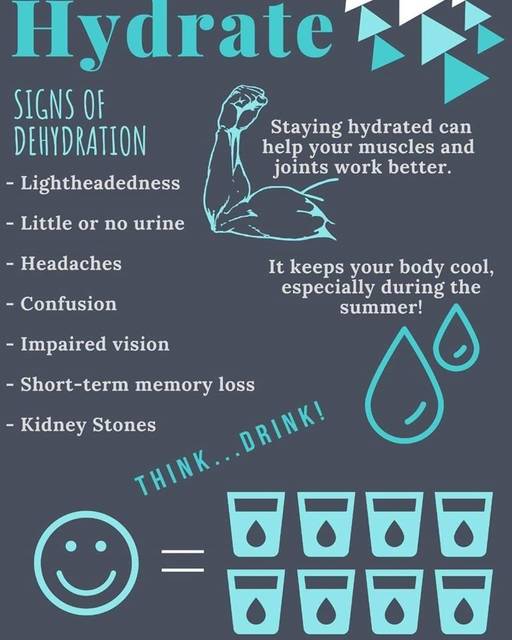

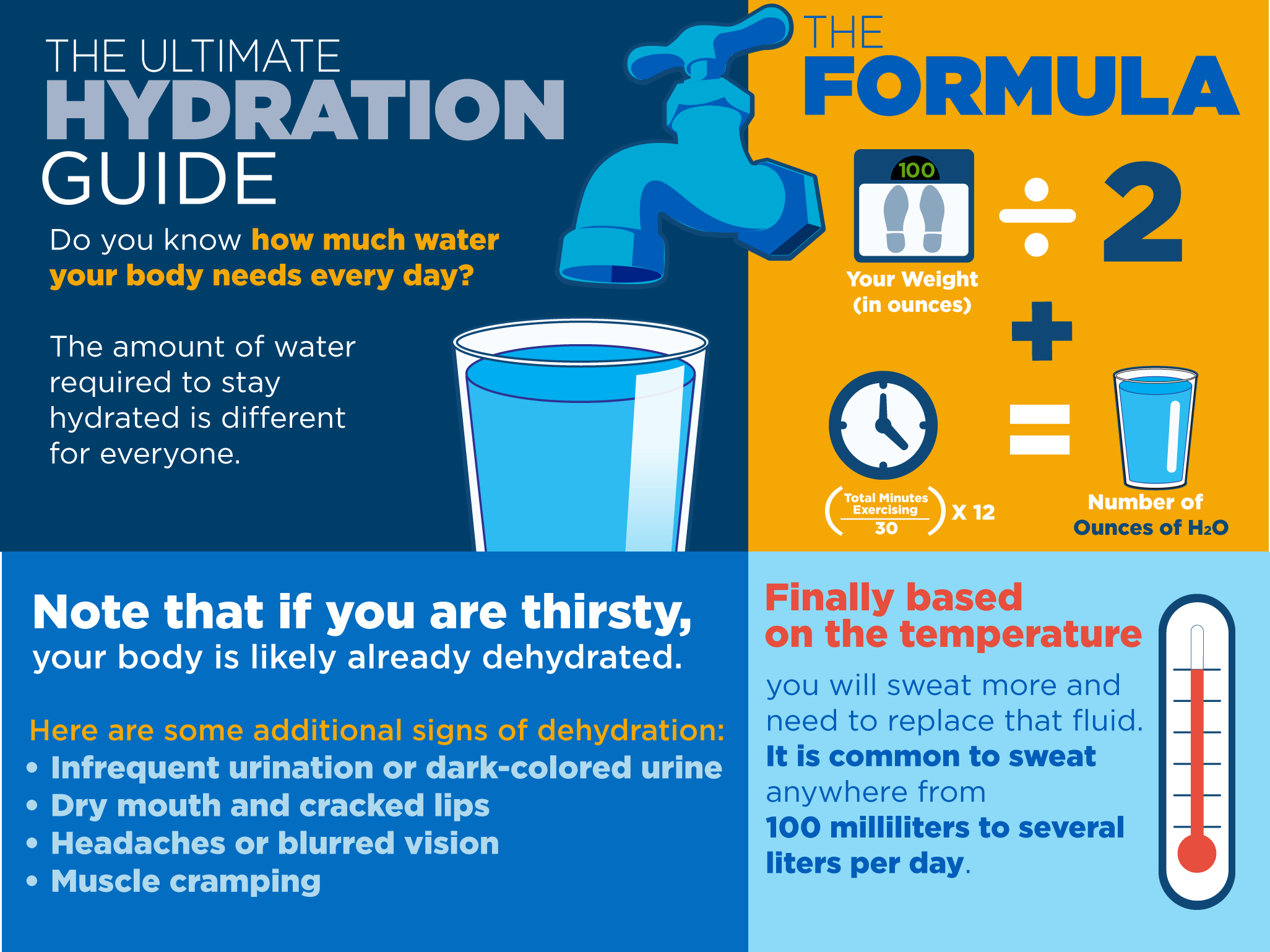
Manage Stress Levels
Practice Stress-Reduction Techniques: Chronic stress weakens the immune system and increases the risk of various diseases. Engage in stress-reduction techniques such as meditation, deep breathing exercises, yoga, or spending time in nature to promote relaxation and overall well-being.
Prioritize Self-Care
Set aside time for activities that bring you joy and help you unwind, such as reading, listening to music, pursuing hobbies, or spending quality time with loved ones.
Prioritize Sufficient Sleep
Establish a Bedtime Routine: Aim for 7-9 hours of quality sleep each night. Establishing a consistent sleep schedule and creating a relaxing bedtime routine, such as avoiding screens before bed and creating a comfortable sleep environment, can promote better sleep.
Why Good Sleep is Important for Our Health?
Good sleep is vital for overall health and well-being. It plays a crucial role in various aspects of our physical, mental, and emotional functioning. Here are some key reasons why good sleep is important:
Physical Health: Restores and rejuvenates the body. During sleep, the body undergoes important processes such as tissue repair, muscle growth, and the release of growth hormones. Adequate sleep allows the body to recover and recharge for optimal physical functioning.
Supports immune function: Sleep is closely linked to the immune system. Sufficient sleep helps strengthen the immune system, making it more effective in fighting off infections and reducing the risk of illnesses.
Promotes healthy weight management: Lack of sleep is associated with hormonal imbalances that can increase appetite and cravings for unhealthy foods. Sustaining healthy sleep patterns can help regulate hormones involved in hunger and satiety, supporting weight management efforts.
Cognitive Function: Enhances memory and learning. During sleep, the brain consolidates and organizes information, facilitating memory formation and retention. Quality sleep improves cognitive function, attention span, problem-solving abilities, and learning performance.
Boosts mental clarity and productivity: Adequate sleep promotes mental alertness, concentration, and decision-making abilities. It enhances productivity, problem-solving skills, and creativity.
Emotional Well-being: Regulates mood and emotional stability. Sufficient sleep is essential for emotional regulation and stability. Sleep deprivation can contribute to irritability, mood swings, increased stress levels, and a higher susceptibility to mental health disorders such as anxiety and depression.
Supports mental resilience: Good sleep plays a vital role in stress management and resilience. It helps restore emotional balance, reduces sensitivity to negative emotions, and improves coping mechanisms.
Physical and Mental Performance: Improves physical performance. Athletes and individuals engaged in physical activities benefit from good sleep as it enhances athletic performance, coordination, reaction time, and overall physical endurance.
Optimizes mental performance: Whether it's academic performance, professional tasks, or creative endeavors, quality sleep provides mental clarity, focus, and problem-solving abilities necessary for optimal performance in various domains.
Overall Health and Longevity: Reduces the risk of chronic diseases. Poor sleep is associated with an increased risk of chronic conditions such as obesity, diabetes, cardiovascular disease, and certain cancers. Prioritizing good sleep habits can contribute to better long-term health outcomes.
Supports longevity: Several studies have linked sufficient sleep with increased longevity and a reduced risk of premature death. Healthy sleep patterns are an important component of a healthy lifestyle.
In summary, good sleep is essential for physical health, cognitive function, emotional well-being, and overall performance in various aspects of life. Prioritizing quality sleep by adopting good sleep habits and creating a conducive sleep environment is crucial for maintaining optimal health and vitality.

Why Taking Vitamins Supplements is Important for Our Health?
Taking vitamin supplements can be important for our health in certain situations when our dietary intake or specific health needs may require additional nutrient support. Here are some reasons why taking vitamin supplements can be beneficial:
Nutrient Deficiencies: Certain individuals may have difficulty obtaining adequate amounts of essential vitamins and minerals solely through their diet. Factors such as restrictive diets, food allergies, medical conditions, or poor nutrient absorption can contribute to nutrient deficiencies. In such cases, vitamin supplements can help bridge the gap and ensure sufficient nutrient intake.
Increased Nutrient Needs: There are certain life stages or situations when our nutrient requirements increase. For example, pregnant women may need additional folic acid and iron to support fetal development, and older adults may require extra vitamin D for bone health. Vitamin supplements can provide targeted nutrient support during these periods.
Limited Sun Exposure: Vitamin D, often referred to as the "sunshine vitamin," is primarily synthesized by the body when the skin is exposed to sunlight. However, individuals who have limited sun exposure, such as those living in northern latitudes, working indoors, or following cultural practices that restrict sun exposure, may benefit from vitamin D supplementation to maintain optimal levels.
Vegetarian or Vegan Diets: Vegetarian and vegan diets can be nutritionally adequate, but certain nutrients like vitamin B12, iron, zinc, and omega-3 fatty acids are mainly found in animal-derived foods. Supplementing these nutrients can help prevent deficiencies in individuals following plant-based diets.
Specific Health Conditions: Certain health conditions or medical treatments may increase the need for specific vitamins or minerals. For instance, individuals with malabsorption disorders, gastrointestinal diseases, or recovering from surgeries may require supplementation to support nutrient absorption and healing.
However, it's important to note that while vitamin supplements can be beneficial in specific cases, they are not a substitute for a balanced and nutritious diet.
Whole foods provide a wide range of nutrients, fiber, and other beneficial compounds that supplements cannot fully replicate. It is generally recommended to prioritize a varied diet rich in fruits, vegetables, whole grains, lean proteins, and healthy fats as the foundation of a healthy lifestyle.
Before starting any vitamin supplementation regimen, it is advisable to consult with a healthcare professional or a registered dietitian who can assess your individual needs and recommend appropriate supplements based on your specific requirements, medical history, and current health status.
Authors' Choice of Vitamin D Supplement
NatureWise Vitamin D3 5000iu Healthy Muscle Function
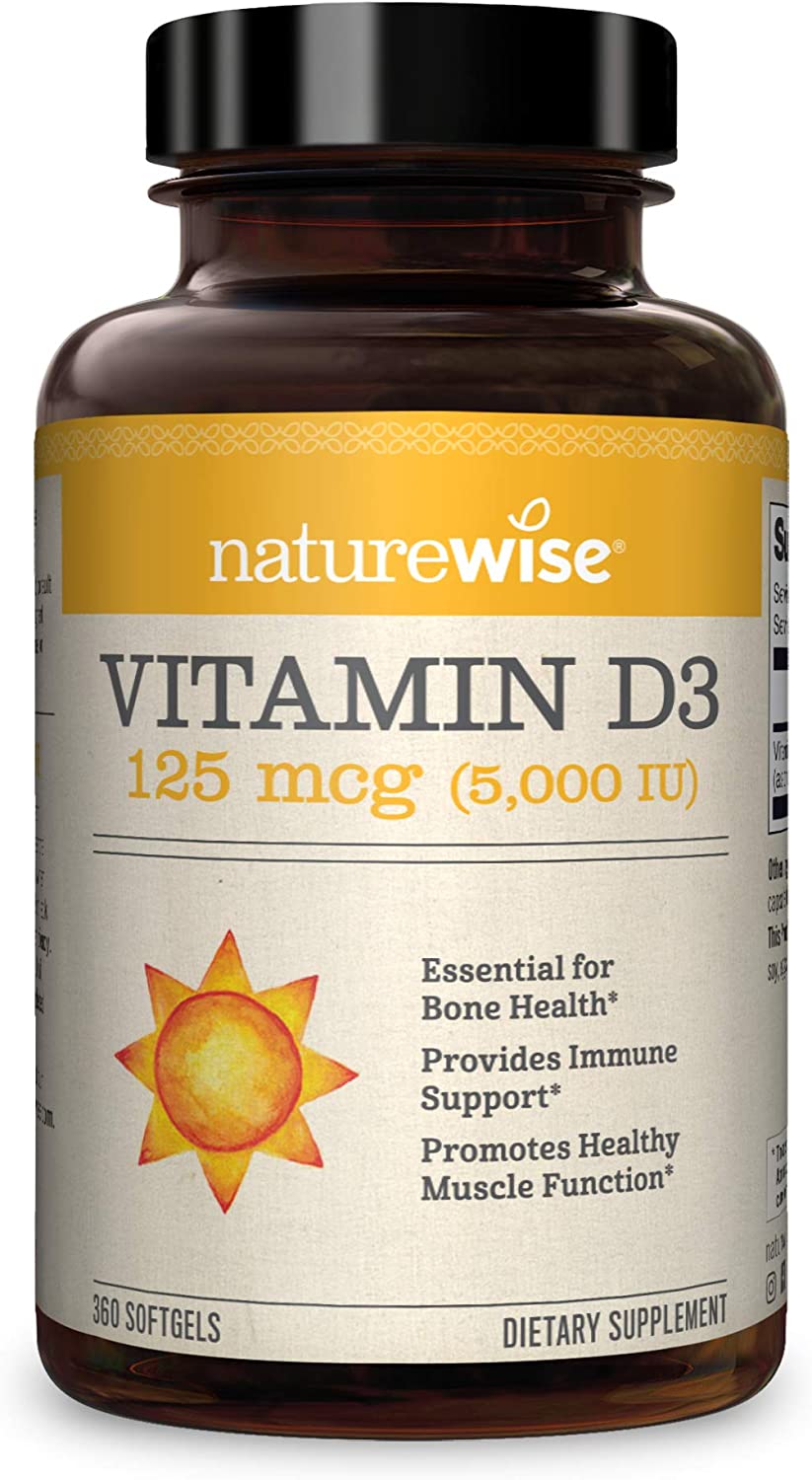
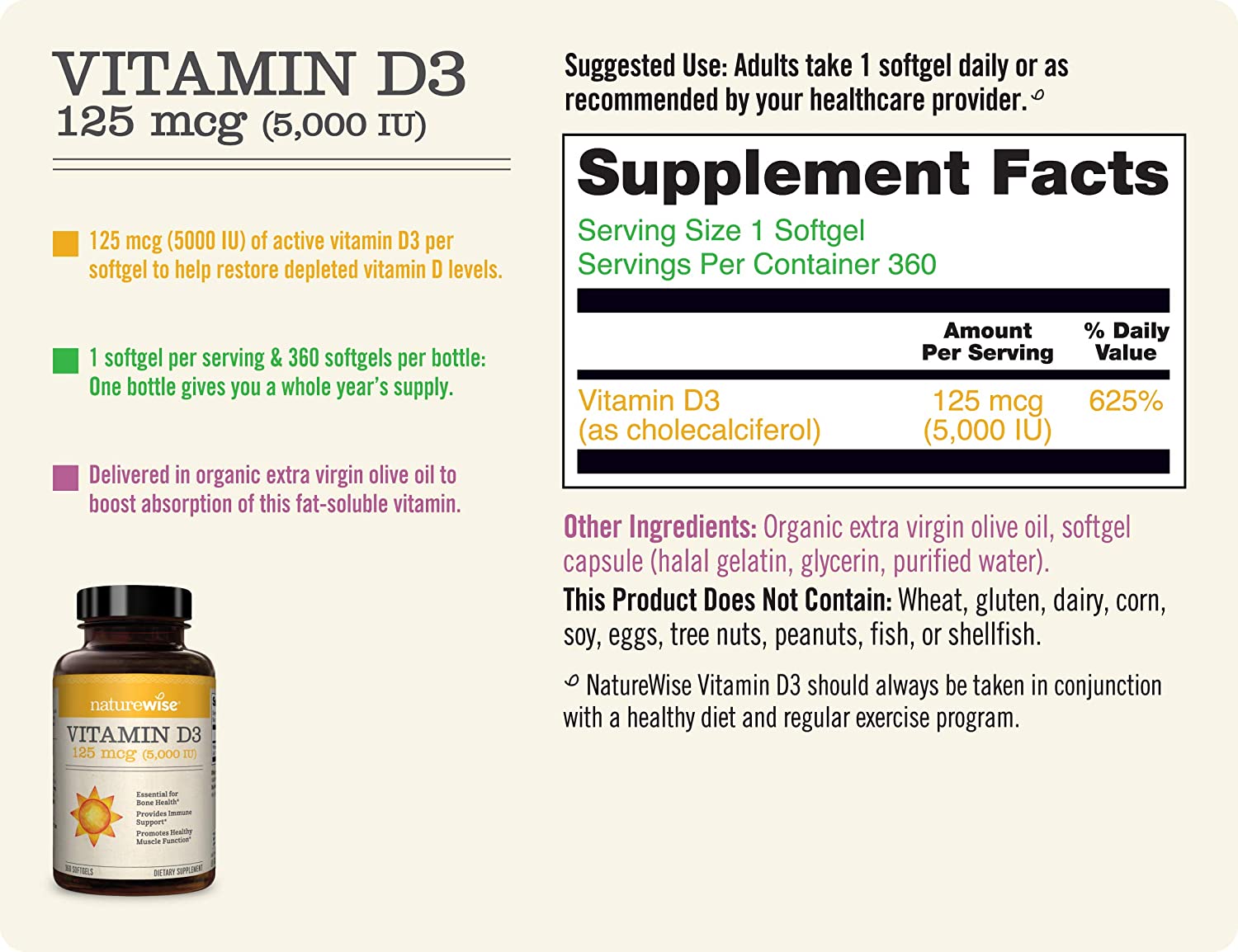

- Get your daily dose: The Vitamin D Council recommends 5,000 IU Vitamin D daily for adults to achieve and maintain optimal levels. Supports the body’s ability to maintain good bone health
- Highest potency: Our Vitamin D 5000 IU softgels are easy to swallow. Some research indicates that vitamin D3 in liquid softgel form is more bioavailable than powdered or tablet forms. No artificial additives
- Pure & natural: These Vitamin D3 immune support and bone health supplements are gluten-free and non-GMO. Third party tested for purity and potency. Packaging may vary due to high demand, same great product and ingredients.
- NatureWise Vitamin D3 5000iu in certified organic olive oil is an easy and convenient way to get your daily dose of this important nutrient. Vitamin D3 is essential for bone health, immune support, and healthy muscle function.
- The Vitamin D Council recommends 5,000 IU of Vitamin D3 daily for adults to achieve optimal levels. With NatureWise Vitamin D3, you can be sure you’re getting a high-quality product that will help support your overall health
Authors' Choice of Proteins
Orgain Organic Vegan Protein Powder

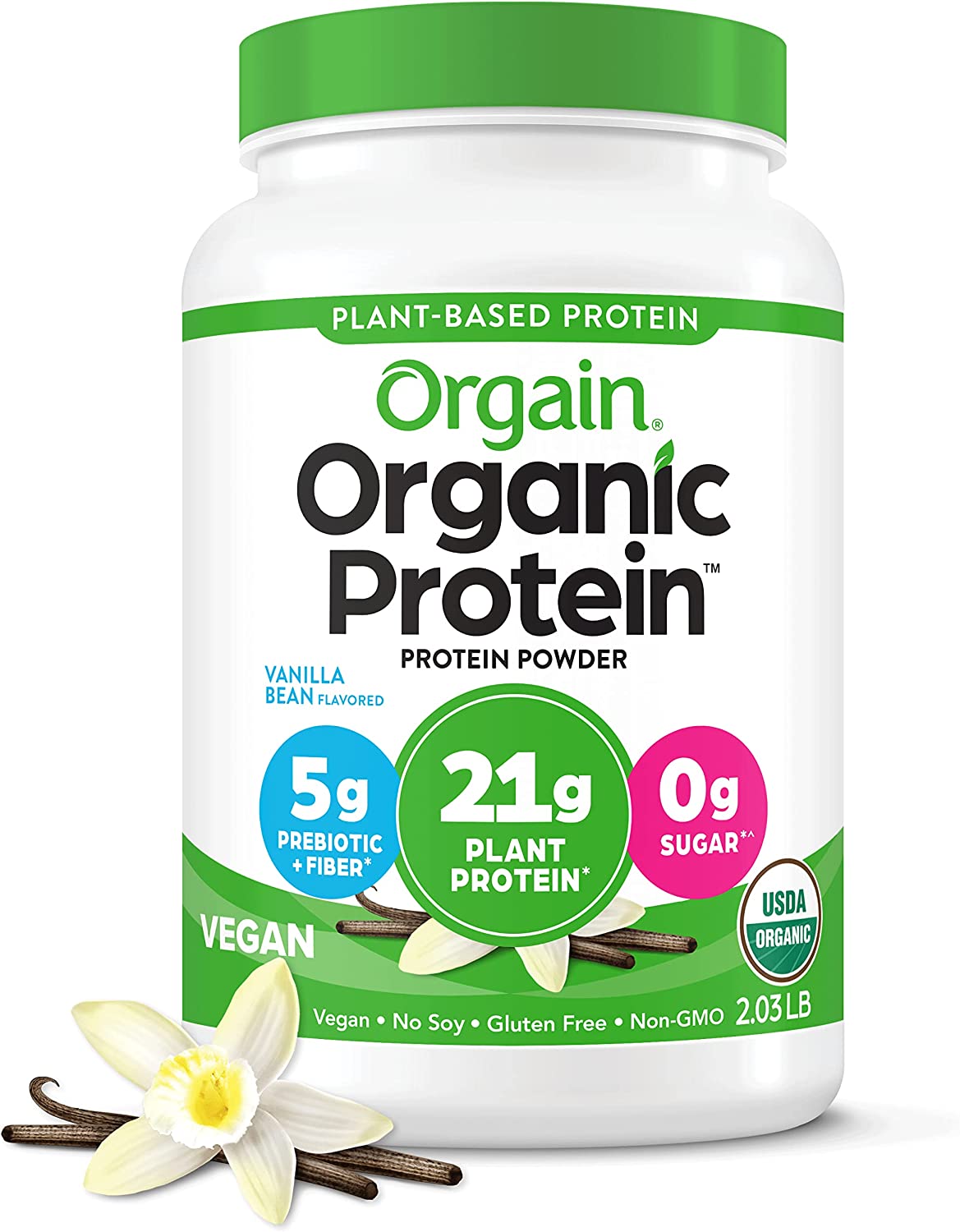

- 21 grams of organic plant based protein (pea, brown rice, chia seeds), 2 grams of organic dietary fiber, low net carbs, 0 grams of added sugar, 150 calories per serving
- USDA organic, vegan, gluten free, dairy free, lactose free, low net carbs, no added sugar, soy free, kosher, non GMO, carrageenan free, and no artificial ingredients
- Mix with water, milk, or your favorite protein shake recipe for a quick breakfast or snack drink. Use when baking to give your cakes, muffins, brownies, or cookies a protein and energy boost
- Ideal for healthy, on the go nutrition for men, women, and kids. These are great for meal replacement, smoothie boosters, muscle recovery, and pre or post workouts
Why You Should Consider Protein Shakes Smoothies
A protein shake provides low-calorie, clean protein that will enhance your burning furnace. Whey protein contains the hormone CCK, which makes you feel full and satisfied, thereby reducing food cravings. Fermented soy powder was recently studied at Beth Israel Medical Center in Boston for its effects in promoting weight loss in obese animals.
Animals fed fermented soy powder lost as much as 64 percent of their body fat. As well, they did not eat as much food as the animals who didn't get fermented soy powders, providing evidence that food cravings were reduced. Protein shakes are refreshing, provide quick energy, and are a wonderful alternative to caffeine-laden beverages.

Conclusion
Preventing and battling diseases begins with making conscious choices to embrace a healthy lifestyle. By incorporating nutrient-dense foods into our diet, engaging in regular exercise, staying hydrated, managing stress, and prioritizing sufficient sleep, we can strengthen our body's defenses and reduce the risk of various illnesses.
Relevant Reads>>>














